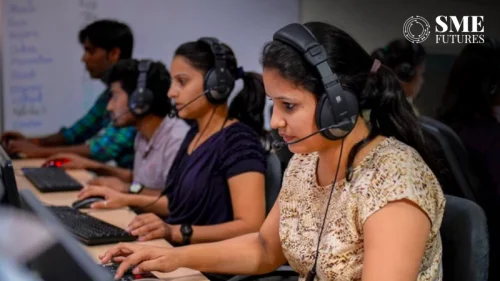In India, Micro, Small, and Medium Enterprises (MSMEs) are often referred to as the backbone of the economy. They contribute significantly to employment, innovation, and economic growth.
As we look towards the future, integrating MSMEs into the Budget Internship Scheme can create a win-win situation for both students and businesses. Here’s why this initiative is crucial.
Bridging the gap between theory and practice
Internships in MSMEs can effectively bridge the gap between theoretical knowledge and practical skills. Many students graduate with a solid understanding of concepts but lack real-world experience.
According to a report by the National Skill Development Corporation, about 80 per cent of employers believe that graduates lack the necessary skills for the job market. By providing internships in MSMEs, students can gain hands-on experience, which prepares them for real-world challenges.
For example, a student interning at a local textile manufacturing unit can learn about supply chain management, quality control, and customer relations. This exposure not only enhances their resume but also equips them with skills that are directly applicable in the workplace.
Moreover, MSMEs often operate in dynamic environments, allowing interns to develop agility and problem-solving skills, which are highly sought after by employers.
Access to young, skilled interns for MSME innovation
The infusion of young talent through internships can help MSMEs innovate, adapt, and thrive in a competitive market. Young interns bring fresh perspectives and new ideas, which can be invaluable for businesses looking to stay relevant.
A survey by the Confederation of Indian Industry (CII) found that 60 per cent of MSMEs believe that hiring interns can lead to innovative solutions and improved business processes.
For instance, an intern with a background in digital marketing can help an MSME establish a robust online presence, which is crucial in today’s digital age. This not only enhances the company’s visibility but also opens up new avenues for customer engagement.
By leveraging the skills of young interns, MSMEs can become more competitive and responsive to market changes.
Mutual benefits: Learning and energy exchange
The relationship between interns and MSMEs is mutually beneficial. Interns gain practical experience and learn resourcefulness, while MSMEs benefit from the energy and creativity that young minds bring.
According to the Indian Institute of Management, 70 per cent of interns reported that their experience in MSMEs helped them develop critical thinking and adaptability.
For example, an intern working in a family-owned food processing unit might suggest a new product line based on current food trends. This not only empowers the intern but also provides the business with innovative ideas that can lead to growth.
Such interactions foster a culture of collaboration and learning, which is essential for the long-term success of both parties.
Promoting inclusivity and balanced growth
Encouraging MSMEs to participate in the Budget Internship Scheme promotes inclusivity and ensures that growth is balanced across businesses of all sizes. While large corporations often have established internship programs, MSMEs can sometimes be overlooked. However, by integrating them into this scheme, we can create a more equitable job market.
The MSME sector employs over 110 million people in India, and by providing internship opportunities, we can help these businesses attract and retain talent.
This inclusivity not only aids in the growth of MSMEs but also contributes to the overall economic development of the country.
A diverse workforce leads to a variety of perspectives, which can drive innovation and creativity.
Addressing the skills gap in the workforce
One of the most pressing issues facing the Indian job market is the skills gap. Many graduates enter the workforce without the necessary skills to succeed.
The World Economic Forum estimates that by 2025, 85 million jobs may be displaced due to automation and technological advancements. Internships can play a crucial role in addressing this gap.
By partnering with MSMEs, the Budget Internship Scheme can provide students with the opportunity to learn skills that are in demand.
For instance, interns can be trained in digital tools, data analysis, and customer engagement strategies. This not only prepares them for the workforce but also equips MSMEs with a skilled labor force that can drive growth.
Real-world examples and personal insights
In my experience, I have seen how internships can transform both students and businesses. For instance, I once worked with a small manufacturing unit that struggled to keep up with market demands.
By introducing an internship program, they were able to bring in fresh talent who suggested process improvements and innovative marketing strategies. The result was a significant increase in production efficiency and sales.
Moreover, I have conducted training and development sessions for employees in various MSMEs, focusing on best management practices. These sessions not only empower employees but also create a culture of continuous learning.
When interns are included in these training programs, they gain valuable insights that enhance their practical skills and understanding of the industry.
Integrating MSMEs into the Budget Internship Scheme is not just beneficial for students; it is a strategic move that can drive innovation, inclusivity, and growth in the Indian economy.
By bridging the gap between theoretical knowledge and practical skills, providing access to young talent, and promoting a culture of learning, we can create a robust ecosystem that supports both interns and MSMEs.
As we move forward, it is essential to recognise the potential of MSMEs and empower them to participate in initiatives that foster growth and development.
By doing so, we can ensure a brighter future for the next generation of professionals and contribute to the overall prosperity of our economy.











